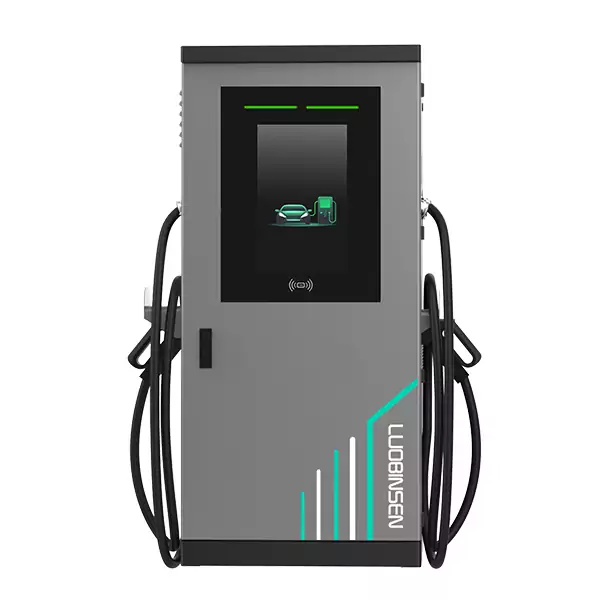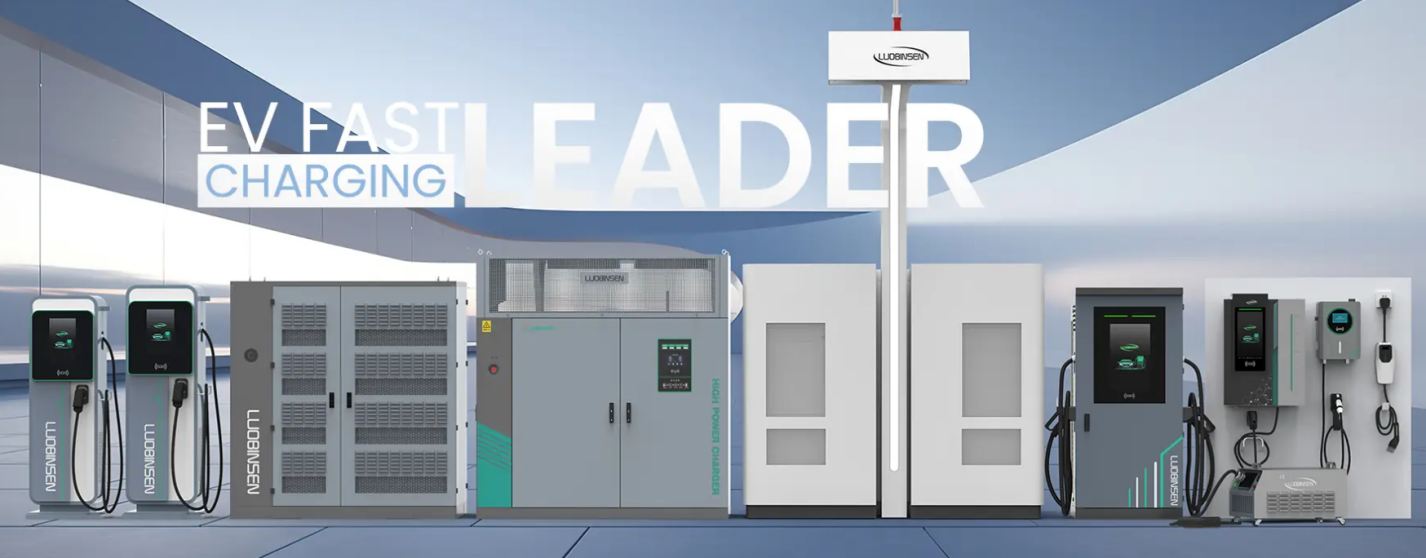By the end of 2023, global electric vehicle sales may see a 39% increase.[1] The burgeoning electric vehicle (EV) market has sparked a demand for efficient charging solutions. The convenience and accessibility of EV chargers play a significant role in the wide development of electric vehicles, and the role of DC EV chargers is even more prominent.
Unlike their AC counterparts, DC chargers can directly provide higher voltage and current to electric vehicle batteries, significantly reducing charging time. Some efficient chargers allow for a range of tens of kilometers for EVs in just 10 minutes of charging time. This efficiency is particularly important for addressing the “range anxiety” issue that electric vehicle users are generally concerned about. It is unattainable with most AC systems.
About DC EV Chargers
EV DC fast charger is a medium used to charge onboard batteries using the power grid. Its main components include a DC power supply, power conversion system, and charging connectors. The power conversion system is central to a DC EV charger, which converts AC power from the grid to DC for battery storage. The connector serves as the interface between the charger and the electric vehicle, allowing power to be transmitted from the grid to the vehicle’s battery.
The chargers also include a refined control system that monitors and adjusts the charging process according to real-time data from the EV’s battery management system. It guarantees the finest charging speeds while precluding battery damage. Moreover, DC EV chargers always incorporate a cooling system to manage the heat during high-speed charging for preserved efficiency and safety.
DC chargers do not store electricity but instead convert AC power from the power grid into DC power through their internal power conversion system, which is the form of electricity stored in vehicle batteries. This is the working process of the DC charger.
What’s the Progress of DC EV Chargers?
The gradual improvement of EV charging technology is bringing continuous improvement experiences to electric vehicle users. The following are some obvious progresses in DC EV chargers:
1. High Power Charging
High-power DC EV chargers are altering the landscape with dropped charging time. The waiting time for car owners will become shorter without compromising safety with the adoption of DC chargers. For modern people with a fast-paced lifestyle, this is undoubtedly a huge advantage. Fast charging is a crucial step in improving the overall convenience of electric vehicles and contributes to the widespread adoption of sustainable transportation.
2. Intelligent Charging Function
The DC EV charger integrates an intelligent charging function. They are usually equipped with advanced control systems that can intelligently adjust the charging speed and status based on the actual needs of the vehicle, the status of the power grid, and environmental factors, thereby ensuring charging efficiency and safety. These intelligent features make electric vehicle charging more user-friendly and convenient and seamlessly adapt to the preferences and requirements of users.
3. Wide Vehicle Compatibility
Current DC EV chargers focus on broad vehicle compatibility for many EV models and battery types. The standardization of charging connectors and protocols ensures that electric vehicles of different brands can seamlessly connect to charging infrastructure. Apart from that, these chargers have real-time communication systems that adjust charging parameters according to the needs of each vehicle’s battery, whether a compact car or a large electric bus. This inclusiveness promotes interoperability and makes electric vehicle charging stations more popular.
4. Reassuring Charging Experience
A key focus in DC EV chargers is augmenting user experience while ensuring dependability and security. The intuitive interfaces show real-time feedback on charging status and issues, and remote monitoring and diagnostics allow immediate troubleshooting and maintenance. In addition, the protection systems equipped in the DC EV charger, such as short circuit, overvoltage or undervoltage, overheating, and lightning protection, reduce potential risks for users and provide a safe charging environment.
Luobinsen’s All-in-one DC Charger (120kW)
Luobinsen is an advanced supplier in the DC EV charger industry, providing a wide range of products for different electric vehicle power supply needs, one of which is the All-in-one DC Charger (120kW). It features a wide voltage output range of DC200V-1000V and a high power selection range from 60kW to 360kW. Some of this all in one charger’s features are:
- The self-developed central control system confirms efficient charging and safety
- Accommodate multiple charging standards like GBT, CCS1, CCS2, and CHAdeMO
- A 15.6-inch touchscreen and Multi-languages options for user-friendly interaction
- A multifunctional TCU and central controller for rapid data processing and extensive record-keeping
- Remote software and firmware upgrades reduce the need for on-site maintenance
- A sturdy, waterproof, and heat-dissipating structure provides comprehensive protection and extends service life
- Short circuit, current limiting, overheating, lightning, tilt angle protection, etc., ensure comprehensive safety
Conclusion
Overall, DC chargers have played a crucial role in driving the growth of the EV industry and are becoming the preferred choice for electric vehicle users due to their high efficiency, speed, and safety.
Luobinsen, established in 2008, is a pioneer in DC EV charger technology in the EV charger market. We were the first in China to develop self-made EV chargers and the earliest to export CCS2 chargers internationally. Our company offers an assortment of EV chargers adaptable to numerous standards, meeting different customers’ needs. Contact us now to explore advanced and innovative EV charger solutions!
References
[1] Global EV sales up 49% to 6.2 million units in H1 2023, with 55% of vehicles sold in Mainland China. Available at: https://canalys.com/newsroom/global-ev-sales-h1-2023 (Accessed: 25 December 2023)







